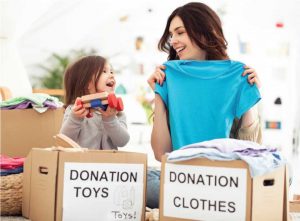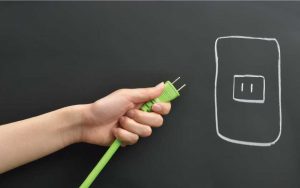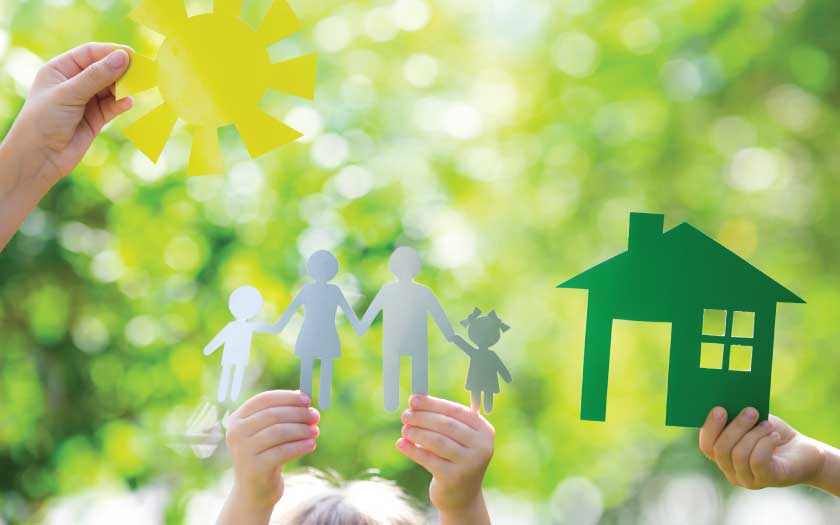It’s not possible to go through life without leaving carbon footprints, which is the measure of the environmental impact of one’s lifestyle or operation, measured in units of carbon dioxide.
As humans, we tend to leave these footprints in our day to day lives, right from the time we were born, but we can still keep this in check and do our part to help make our earth a better place to live in. Parents can also lead by example and show their children the importance of treading lightly on this planet we share.
Diapers: Disposable or cloth?
A staggering number of disposable diapers and baby wipes end up in landfills every year and this is simply undeniable. It has come to a point that it’s no longer a debate but a fact, that cloth diaper lessens the negative environmental impact, as will reducing or eliminate your reliance on baby wipes, another major presence in landfills.
Try using soft cotton fabric squares which have been moistened in place of baby wipes for washable wipes or, if you simply can’t do without them, use wipes only for emergencies and not as a regular accompaniment at nappy changing times.
Laundering with love
Little children go through loads of clothing changes, and that’s quite natural especially for parents who do not fancy their baby or toddler looking even a bit messy. However, you can do your part by firstly reminding yourself that laundry via washing machines utilises loads of water, a precious resource that needs to be saved as much as possible. With that in mind, you can begin to rethink your laundry needs by perhaps letting your little ones’ clothing get a little more dirty before throwing it into a laundry basket.
When working your washing machine, wash only full loads and not small ones. Also, be sure to clean the lint filter in your dryer before each load to cut back on drying time. Better yet, hang clothes on a line when the weather allows and let them dry in the fresh air.

Reuse and recycle
Parents will always desire to provide the best for their children, from cribs to strollers and even clothes. However, wise parents would know that over-purchasing can be a real waste of both money and items, as babies grow quickly and they tend to outgrow almost anything at rapid speed.
You can avoid spending too much and at the same time help save the planet by borrowing baby stuff: Many items can be borrowed from relatives and friends and these include baby cots, car seats, strollers, etc. Some may even want to give away these items, and if you in turn use them wisely, you may also be able to give them away to other parents who might need them in the future.
Also, have you considered buying preloved baby stuff? Most baby stuff still has lots of wear long after the original owners graduate to the next stage. Remember that recycling is more than just tossing newspapers and empty drink cans in a separate bin: reusing instead of buying is also an effective way of recycling.
The impact of modern living
Today, most parents of babies and toddlers can’t seem to do without disposable diapers, baby wipes, car seats, swings, strollers, and all sorts of other equipment that eventually end up in a landfill somewhere. Plus, as kids continue to acquire stuff as they get older, from tricycles and wagons to computers and video games, they leave behind carbon trails like never before in the history of humankind.

Power down whenever you can
Unplugging TVs, DVD players, computers, cell phone chargers, iPod docking stations, and video game systems when they’re not in use could keep thousands of pounds of carbon dioxide out of the air annually and save you money on your power bill. Remember, some appliances use power even when they’re off because of their standby mode. You can also consider switching from traditional incandescent bulbs to fluorescent bulbs. It is an easy and cost-efficient fix for saving energy. CFLs (compact fluorescent lights) cost more but will save you money and carbon dioxide emissions in the long term.
Plan your trips
Always plan your routes and let every trip with a car count! For instance, you could sneak in grocery shopping on the way home from visiting a relative rather than making a separate trip.
Getting acquainted with the term carpooling could mean more than just saving fuel and money. It also means fostering cooperation and competence between parents and sharing the responsibility of raising and caring for the little ones in the community.
Enjoy the bounty of nature
If you wish to teach your children about saving the planet, show them what the planet is all about! One way is to expose them to all nature has to offer. Because of busy schedules, safety concerns, and changing demographics, most children can’t wander around in fields and parks the way they did a generation or two ago. It may require planning, but let kids get a chance to feel what’s it like to be more in sync with nature.
You don’t need to spend lots of money or travel far; enjoy adventures like a backyard campout or a scavenger hunt whenever the weather permits it.
Host a kids’ clothing swap
Hold a clothing-swap evening and invite all your friends with kids of varying ages. While clothes that are worn too regularly such as a favourite jumper may be too tattered to pass on, but fancy outfits often get worn only once or twice before children outgrow them. Through a clothing swap, such items can be passed to others who may be able to put them to good use.
At such clothing swaps, you’ll get to socialize with other parents, clean out your closet and replenish your child’s wardrobe.
Bring your shopping bag
Make your supermarket trips greener by bringing reusable bags and doing your part in minimising the use of plastic bags, which is one of the most notorious earth poisons. Already, most supermarket chains in Malaysia have taken the initiative to encourage their shoppers to bring their shopping bags to help control the use of plastic bags — so jump into the bandwagon for the good of our planet if you haven’t already done so!


